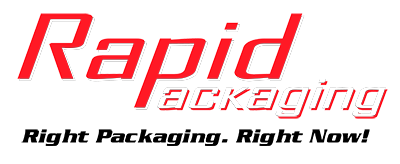Polyethylene liners, commonly referred to as poly liners, are flexible plastic liners specifically designed to line the inside of a flexible intermediate bulk container (FIBC or bulk bag).
 Polyethylene liners are extremely useful in a variety of industries and applications where FIBC’s are being used. They can easily be paired with FIBCs to provide an extra protective layer for the product and bulk bag.
Polyethylene liners are extremely useful in a variety of industries and applications where FIBC’s are being used. They can easily be paired with FIBCs to provide an extra protective layer for the product and bulk bag.
Using Poly Liners with Chemicals
Right out of the box, FIBCs/bulk bags are resistant to many different types of chemicals. That being said, in some instances additional protection is very useful if not required. Using liners in combination with bulk bags prevents chemicals from sifting through the fabric weave and seams of the FIBC. It also prevents chemical contact with the woven polypropylene that can increase wear and tear on the bag.
Using Polyethylene Liners with Fine Powders
 Flexible intermediate bulk containers are made up of individual strands of polypropylene woven together to form the structure of the bag. This creates a strong, flexible, lightweight material that is perfect for a wide variety of applications. However, this can create problems when filling them with fine materials.
Flexible intermediate bulk containers are made up of individual strands of polypropylene woven together to form the structure of the bag. This creates a strong, flexible, lightweight material that is perfect for a wide variety of applications. However, this can create problems when filling them with fine materials.
Fine powders are more susceptible to leaking through the bag during transport, maneuvering and filling of the bag. This is where liners become paramount to use in FIBCs with fine powders. Liners prevent fine powders from sifting through the body and seams of the bag. They should be tied at the top after the bag is filled to contain the material.
Using with Sensitive Materials
On top of providing protection for the FIBC, polyethylene liners also provide additional protection for the product contained in the bag. Certain materials used in industries that are more sensitive to contamination need additional protection when using bulk bags. Poly liners prevent moisture, dust and other contaminates from reaching the materials in the FIBC.
Common Industry Applications
 Polyethylene liners can be used in almost any industry depending on the material being stored/transported. However, there are two industries that are a very good fit for poly liners as their products are heavily regulated and particularly sensitive – the food industry and the pharmaceutical industry.
Polyethylene liners can be used in almost any industry depending on the material being stored/transported. However, there are two industries that are a very good fit for poly liners as their products are heavily regulated and particularly sensitive – the food industry and the pharmaceutical industry.
Food Industry – The food industry often deals with a lot of fine powders and sensitive materials where contamination is not an option. Any contamination in the materials could mean contamination in the food products they sell and that is simply unacceptable. Many bulk bag purchasers in the food industry often pair food grade FIBCs with poly liners for maximum food safety.
Pharmaceutical Industry – Like the food industry, contamination in pharmaceutical materials and end products cannot happen. Materials need to be completely shielded from all contaminates and moisture in the air.
 Thanks for Reading!
Thanks for Reading!
Thanks for reading our post on four common uses for FIBC bulk bag liners! We hope you found this post both helpful and informative.
Finding the right bulk bag polyethylene liner for your product and application can be difficult. Not only is it important to determine the right type of liner for your product and application, it is imperative that you also determine the correct size of liner for the specific bag you are using.
To accurately determine what size polyethylene liner is right for the bag you are using or are interested in, download our FIBC Bulk Bag Liner Estimation Calculator by clicking the button below!






